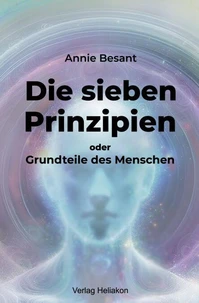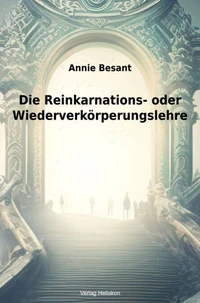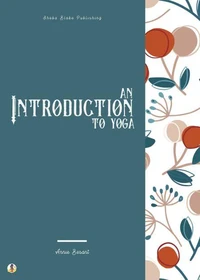Why I Do Not Believe in God
Par :Formats :
Disponible dans votre compte client Decitre ou Furet du Nord dès validation de votre commande. Le format ePub est :
- Compatible avec une lecture sur My Vivlio (smartphone, tablette, ordinateur)
- Compatible avec une lecture sur liseuses Vivlio
- Pour les liseuses autres que Vivlio, vous devez utiliser le logiciel Adobe Digital Edition. Non compatible avec la lecture sur les liseuses Kindle, Remarkable et Sony
 , qui est-ce ?
, qui est-ce ?Notre partenaire de plateforme de lecture numérique où vous retrouverez l'ensemble de vos ebooks gratuitement
Pour en savoir plus sur nos ebooks, consultez notre aide en ligne ici
- Nombre de pages22
- FormatePub
- ISBN859-65--4701550-5
- EAN8596547015505
- Date de parution29/05/2022
- Protection num.Digital Watermarking
- Taille304 Ko
- Infos supplémentairesepub
- ÉditeurDIGICAT
Résumé
In "Why I Do Not Believe in God, " Annie Besant presents a compelling examination of spirituality and religious belief, challenging the traditional tenets of organized religion through a rationalist lens. The book eloquently articulates her views on the nature of divinity, intertwining personal anecdotes with philosophical discourse. Besant employs a clear and persuasive literary style, adeptly utilizing logical arguments and emotional appeals to engage readers.
Set against the backdrop of the late 19th century, a period marked by intellectual awakening and skepticism towards established doctrines, this work serves as a significant contribution to the dialogue surrounding atheism and humanism. Annie Besant was a notable theosophist, social reformer, and advocate for women's rights whose vast experiences shaped her worldview. Born in 1847 in London, her early involvement in social justice issues and her later embrace of Theosophy informed her critique of traditional religious practices.
Besant's commitment to reason and social progress led her to examine the implications of belief on individual and societal well-being, ultimately compelling her to articulate her non-belief. This book is an essential read for anyone interested in the intellectual currents of the time and the merging of spirituality with rational thought. Besant's arguments resonate with contemporary discussions on belief and skepticism, making it a riveting exploration for both scholars and general readers alike.
Set against the backdrop of the late 19th century, a period marked by intellectual awakening and skepticism towards established doctrines, this work serves as a significant contribution to the dialogue surrounding atheism and humanism. Annie Besant was a notable theosophist, social reformer, and advocate for women's rights whose vast experiences shaped her worldview. Born in 1847 in London, her early involvement in social justice issues and her later embrace of Theosophy informed her critique of traditional religious practices.
Besant's commitment to reason and social progress led her to examine the implications of belief on individual and societal well-being, ultimately compelling her to articulate her non-belief. This book is an essential read for anyone interested in the intellectual currents of the time and the merging of spirituality with rational thought. Besant's arguments resonate with contemporary discussions on belief and skepticism, making it a riveting exploration for both scholars and general readers alike.
In "Why I Do Not Believe in God, " Annie Besant presents a compelling examination of spirituality and religious belief, challenging the traditional tenets of organized religion through a rationalist lens. The book eloquently articulates her views on the nature of divinity, intertwining personal anecdotes with philosophical discourse. Besant employs a clear and persuasive literary style, adeptly utilizing logical arguments and emotional appeals to engage readers.
Set against the backdrop of the late 19th century, a period marked by intellectual awakening and skepticism towards established doctrines, this work serves as a significant contribution to the dialogue surrounding atheism and humanism. Annie Besant was a notable theosophist, social reformer, and advocate for women's rights whose vast experiences shaped her worldview. Born in 1847 in London, her early involvement in social justice issues and her later embrace of Theosophy informed her critique of traditional religious practices.
Besant's commitment to reason and social progress led her to examine the implications of belief on individual and societal well-being, ultimately compelling her to articulate her non-belief. This book is an essential read for anyone interested in the intellectual currents of the time and the merging of spirituality with rational thought. Besant's arguments resonate with contemporary discussions on belief and skepticism, making it a riveting exploration for both scholars and general readers alike.
Set against the backdrop of the late 19th century, a period marked by intellectual awakening and skepticism towards established doctrines, this work serves as a significant contribution to the dialogue surrounding atheism and humanism. Annie Besant was a notable theosophist, social reformer, and advocate for women's rights whose vast experiences shaped her worldview. Born in 1847 in London, her early involvement in social justice issues and her later embrace of Theosophy informed her critique of traditional religious practices.
Besant's commitment to reason and social progress led her to examine the implications of belief on individual and societal well-being, ultimately compelling her to articulate her non-belief. This book is an essential read for anyone interested in the intellectual currents of the time and the merging of spirituality with rational thought. Besant's arguments resonate with contemporary discussions on belief and skepticism, making it a riveting exploration for both scholars and general readers alike.









